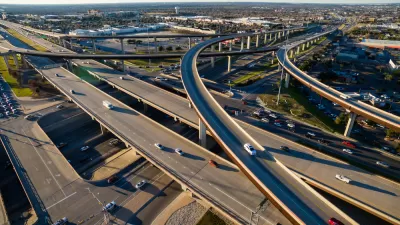As states struggle with ways to increase transportation revenue to shore-up aging infrastructure, we look at Conn. and N.H. Due to indexing, one will increase its gas tax by 4-cents on July 1, while the other rejected a 12-cent increase over 3 years.
When it comes to gas taxes, Connecticut and New Hampshire could not be further apart. Not only do they fall on opposite ends of the gas tax spectrum, but more tellingly, one legislature struggled with whether to reduce or even eliminate an upcoming gas tax increase, while the other, perhaps representative of most states, struggled with how to increase transportation revenue.
The July 1 gas tax increase in Connecticut will "generate about $60 million", while New Hampshire, having seen a tax hike bill clear the House but fail in the Senate, is left to find alternative ways to find transportation revenue.
Connecticut, with a 45-cent gas tax has the fourth highest in the nation according to the Tax Foundation, will replace Hawaii as #3 on July 1, while N.H., not having increased it gas tax since 1991, is rated #41 with a 19.6-cent gas tax.
James Mosher of the Norwich Bulletin writes about the issues the Connecticut legislature struggled over in facing the the modest tax increase that results from indexing, while Brian Wallstin of StateImpact New Hampshire (a collaboration of New Hampshire Public Radio and NPR) interviews N.H. Transportation Commissioner Christopher Clement about the consequences of the failure of the funding legislation for his state's transportation infrastructure.
Some (Conn.) Republican legislators in the General Assembly are trying to stop the increase. Sen. Art Linares, R-Westbrook,... has set up an online petition, saying he plans to deliver the petition to Democratic Gov. Dannel P. Malloy.
The Conn. gas tax increase is similar to Kentucky's 2.4-cent increase on July 1 - both result from the automatic indexing of a tax applied on gasoline sold at the wholesale level. Last year the amount of the increase was capped, as Kentucky had done earlier.
In nearby New Hampshire, Wallstin writes that Clement was not a gas tax booster - he just wanted revenue from any source - including the proposed casino. After the House rejected the casino, he was left with only one option.
A gas tax hike, he said, would put the department on a “path to greatness.”....“If we do not get a long-term, sustainable funding source in the next biennium, we are in really big trouble,” said Clement, speaking at a panel sponsored by the Business and Industry Association of New Hampshire.
Meanwhile, state aid to municipalities for bridge repair and maintenance has not increased since 1994, he said. As a result, the state shut down 11 bridges last year.
The state's roads are suffering as well.
According to TRIP, a nonprofit transportation safety group, New Hampshire’s roads are in similarly dire condition. More than a third of state-maintained roads and highways (PDF) ... are in need of repair, according to the group, while the state DOT has a current roads and bridge maintenance backlog of $1.3 billion.
Paradoxically, each article shows the dire consequences of both increasing the tax and failing to increase the tax.
“We’ve become a state that is not completing [sic] on an economic level with the surrounding New England states,” N.H. Rep. Candace Bouchard, a Democrat from Concord who chairs the House Transportation Committee, told the BIA group.
And in Conn., Chamber of Commerce of Eastern Connecticut President and CEO Tony Sheridan said of the upcoming gas tax increase:
"The increase will hurt economic growth in (counties close to Mass and R.I., states with lower gas taxes). Gas is too expensive already. It’s certainly not going to help consumers, especially commuters. It will be a further drag on the economy.”
So, depending on whom you listen to, the economy will hurt with or without a gas tax increase. But there is nothing theoretical about the additional $60 million in tax revenue that Connecticut will accrue this year.
FULL STORY: Opponents slam tax hike on wholesale gasoline

Trump Administration Could Effectively End Housing Voucher Program
Federal officials are eyeing major cuts to the Section 8 program that helps millions of low-income households pay rent.

Planetizen Federal Action Tracker
A weekly monitor of how Trump’s orders and actions are impacting planners and planning in America.

Ken Jennings Launches Transit Web Series
The Jeopardy champ wants you to ride public transit.

Driving Equity and Clean Air: California Invests in Greener School Transportation
California has awarded $500 million to fund 1,000 zero-emission school buses and chargers for educational agencies as part of its effort to reduce pollution, improve student health, and accelerate the transition to clean transportation.

Congress Moves to End Reconnecting Communities and Related Grants
The House Transportation and Infrastructure Committee moved to rescind funding for the Neighborhood Equity and Access program, which funds highway removals, freeway caps, transit projects, pedestrian infrastructure, and more.

From Throughway to Public Space: Taking Back the American Street
How the Covid-19 pandemic taught us new ways to reclaim city streets from cars.
Urban Design for Planners 1: Software Tools
This six-course series explores essential urban design concepts using open source software and equips planners with the tools they need to participate fully in the urban design process.
Planning for Universal Design
Learn the tools for implementing Universal Design in planning regulations.
Heyer Gruel & Associates PA
Ada County Highway District
Institute for Housing and Urban Development Studies (IHS)
City of Grandview
Harvard GSD Executive Education
Toledo-Lucas County Plan Commissions
Salt Lake City
NYU Wagner Graduate School of Public Service



























